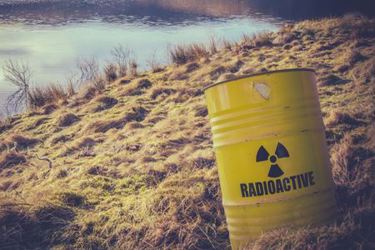Uranium Mills Throughout U.S. Found To Be Polluting Source Water


Roughly 50 years after U.S. officials rushed to build up nuclear capacity on the brink of the Cold War, new research has identified concerning links between military complexes and adverse health effects potentially caused by drinking water contamination.
“Uranium mills that helped fuel the weapons also dumped radioactive and toxic waste into rivers like the Cheyenne in South Dakota and the Animas in Colorado,” ProPublica reported. “But the government didn’t have a plan for the toxic byproducts of this nuclear assembly line. Some of the more than 250 million tons of toxic and radioactive detritus, known as tailings, scattered into nearby communities, some spilled into streams and some leaked into aquifers.”
In the 1970s, Congress established an agency and legal process for uranium mill waste cleanup and most of the facilities closed in the 1980s. But there is remaining concern that it did not properly address the resulting water pollution, and ProPublica recently launched its own effort to catalog the cleanup effort.
“...at least 84% of the country’s uranium mills and related sites have polluted groundwater, and nearly three-quarters continue to pose the threat of groundwater pollution due to inadequate safety measures,” according to the Los Angeles Times. “More than 40 million people rely on drinking water from the Colorado River, but (federal regulatory agencies) allowed companies to leak contamination from mill waste directly into the river, arguing that the waterway quickly dilutes it.”
ProPublica reported that there have been high concentrations of cancer or cancer risks near mills in Utah and New Mexico. It found that half of the former mills have not completed a proper shutdown process, which would include soil and water decontamination.
As new attention is brought to these dangerous facilities, perhaps regulators will take renewed action to protect nearby source water and consumers. While much of the environmental damage has already been done, there is still a chance to stop the problem from growing worse.
“Mining companies can’t remove every atom of uranium from groundwater, experts said, but they can do a better job of decommissioning uranium mills,” per ProPublica. “With the federal government yet to take control of half the country’s former mills, regulators still have time to compel some companies to do more cleanup.”
To read more about how industrial operations can imperil drinking water quality visit Water Online’s Source Water Contamination Solutions Center.
